5 National Parks with the Most EV Charging Stations
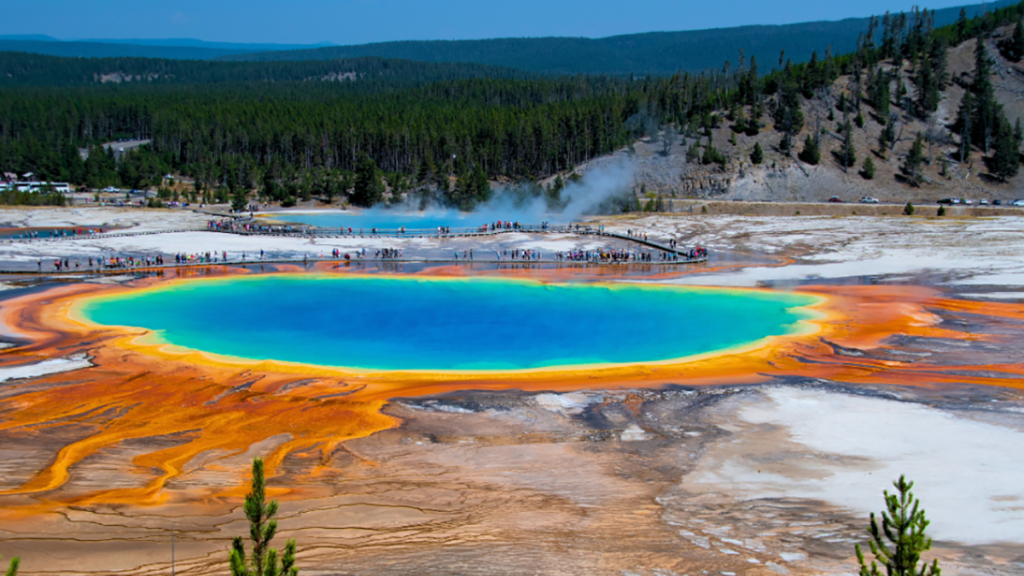
As more drivers seek to reduce their carbon footprint and fuel spending, electric vehicles are popping up more frequently on America’s roads every year. And the National Park Service is taking note. From Olympic to Acadia, many national parks now feature EV charging stations, accommodating guests with a range of vehicles when they visit.
With 132 EV chargers located in 22 national parks across the country, you can easily enjoy many of America’s public lands in an electric vehicle. Certain parks have only one or two charging stations, but others can have as many as six, with multiple chargers often available at each. The chargers themselves can vary, too; some national parks have Level 2 chargers, while others offer DC Fast chargers for visitors to use.
Canva
To help you decide which national park to visit with your electric vehicle, The General used data from the Alternative Fuels Data Center to look at designated national parks with the most charging stations. Parks are ranked by the number of stations, with supplementary data included on the number of chargers, the number of stations, and chargers per 100,000 acres. Ties were broken by the total number of chargers at each park.
(Note: Stations are counted based on the address listed rather than individual station identification codes since some chargers are logged as individual stations. The charger counts should be considered estimates since multiple electric vehicle companies may report the same charger as belonging to their network, leading to potential discrepancies.)
Before you hit the road in your EV, you’ll want to keep a few things in mind. Many areas in these parks lack cell service, so don’t rely on a last-minute search to reach a charging station. Instead, find chargers before you enter a park by using your car’s trip planner or an app like PlugShare. Of course, it’s always a good idea to have a backup plan in case chargers are already in use or out of commission.
GREAT ONLINE CAR INSURANCE
With low rates, low down payments and flexible payment options, this is one of the best ways to get car insurance online.
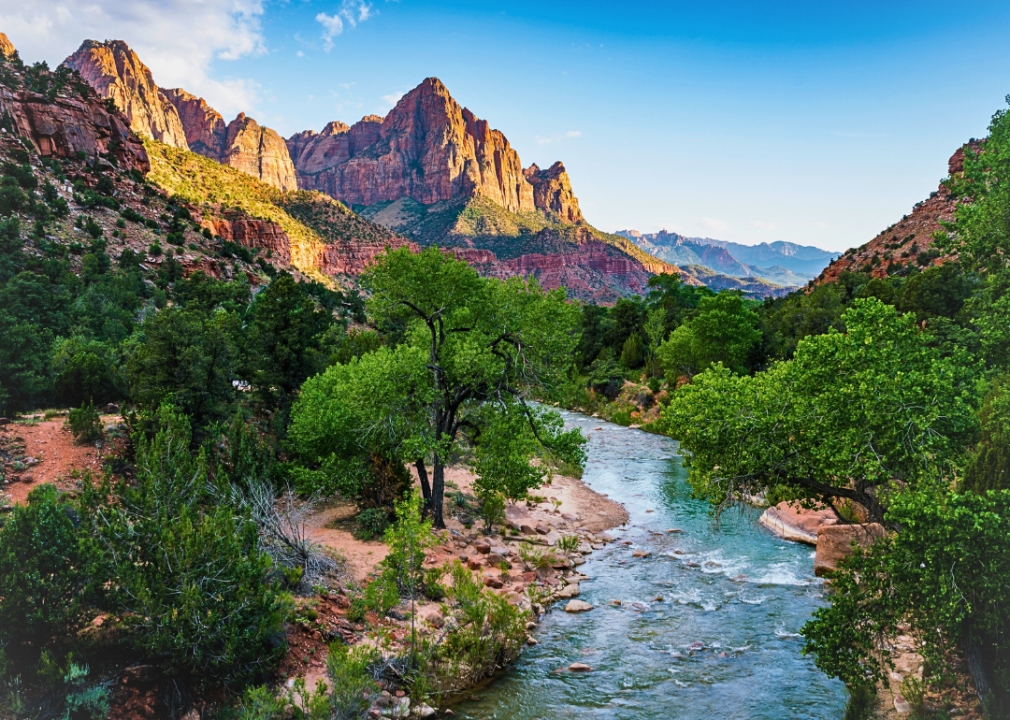
Canva
#5. Zion National Park
– Total charging stations: 4 (2.7 stations per 100K acres)
– Total chargers: 8 (5.4 chargers per 100K acres)
– 8 Level 2 chargers
During peak visitor season, which is typically from Memorial Day to Labor Day, Zion National Park in Utah can see up to 5,000 cars daily. Though gas vehicles will need to be fueled up outside the park, EV drivers can plug in their cars at Watchman Campground or right at the visitor center.
From there, you can ride the seasonally operated shuttle bus to popular day hikes like the Angels Landing trail (which requires a permit) or the Narrows, the aptly named narrowest section of Zion Canyon. Zion is making other efforts to be more EV-friendly, too—in September 2023, new battery-electric buses started shuttling Zion visitors around, replacing the park’s propane-powered vehicles.
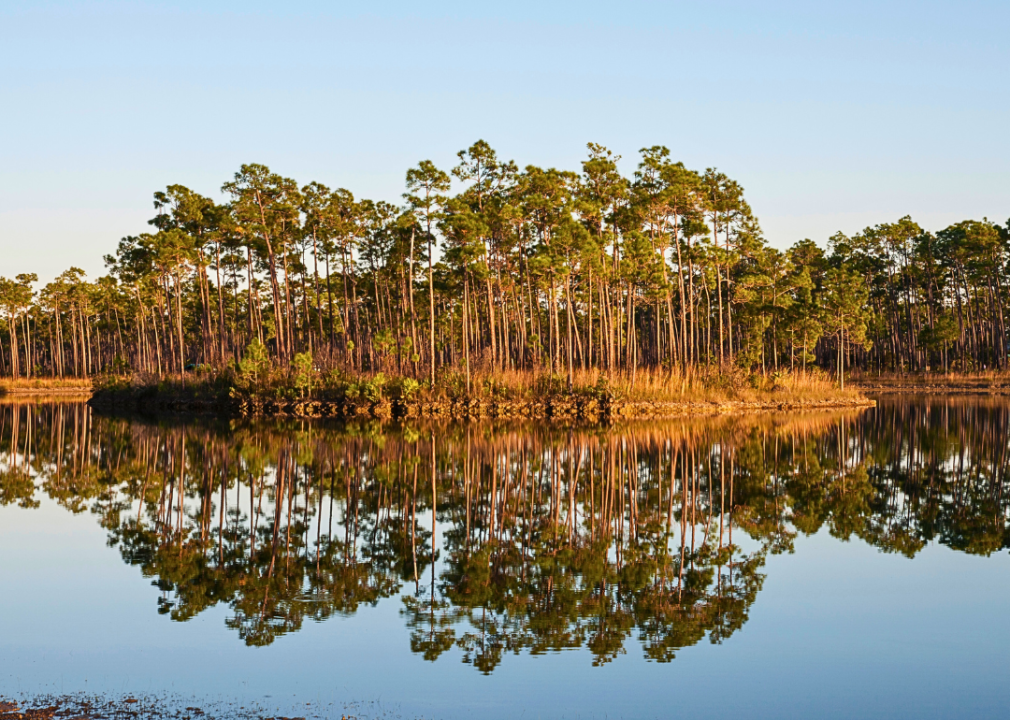
Canva
#4. Everglades National Park
– Total charging stations: 4 (0.3 stations per 100K acres)
– Total chargers: 10 (0.7 chargers per 100K acres)
– 9 Level 2 chargers, 1 DC Fast
The nation’s largest subtropical wilderness, Everglades National Park in Florida, has several publicly accessible chargers where EV drivers can juice up their cars throughout its 1.5 million acres. Most of the park’s visitor centers—Shark Valley, Ernest F. Coe, and Guy Bradley (Flamingo)—have charging stations. While you wait for your car to charge, you can learn more about the Everglades or go for short nature walks. Once you’re ready to hit the road, keep an eye out for native wildlife like roseate spoonbills, nine-banded armadillos, and bobcats.
FIND AFFORDABLE CAR INSURANCE
Get a hassle-free online quote to find the cheap car insurance you need at no cost in just two minutes.
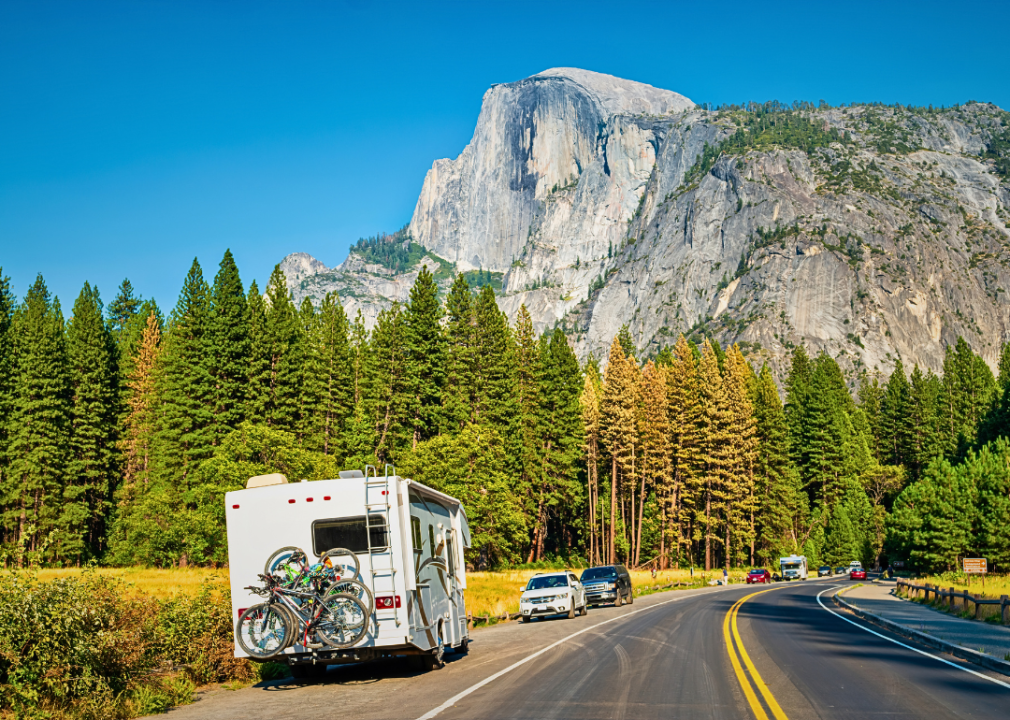
Canva
#3. Yosemite National Park
– Total charging stations: 4 (0.5 stations per 100K acres)
– Total chargers: 12 (1.6 chargers per 100K acres)
– 12 Level 2 chargers
Considering its location in the incredibly EV-friendly state of California, it’s no surprise that Yosemite National Park has more chargers than most other national parks. Several charging stations are located in Yosemite Valley, which you can explore aboard the park’s year-round shuttle bus while you wait for a charge. Visitors can also hike a variety of trails, dip their feet in the cool waters of Tenaya Lake, or simply sit back and soak up views of Half Dome and El Capitan. Other EV charging stations can be found in the Tuolumne Meadows area and El Portal, just outside the park’s Arch Rock Entrance.
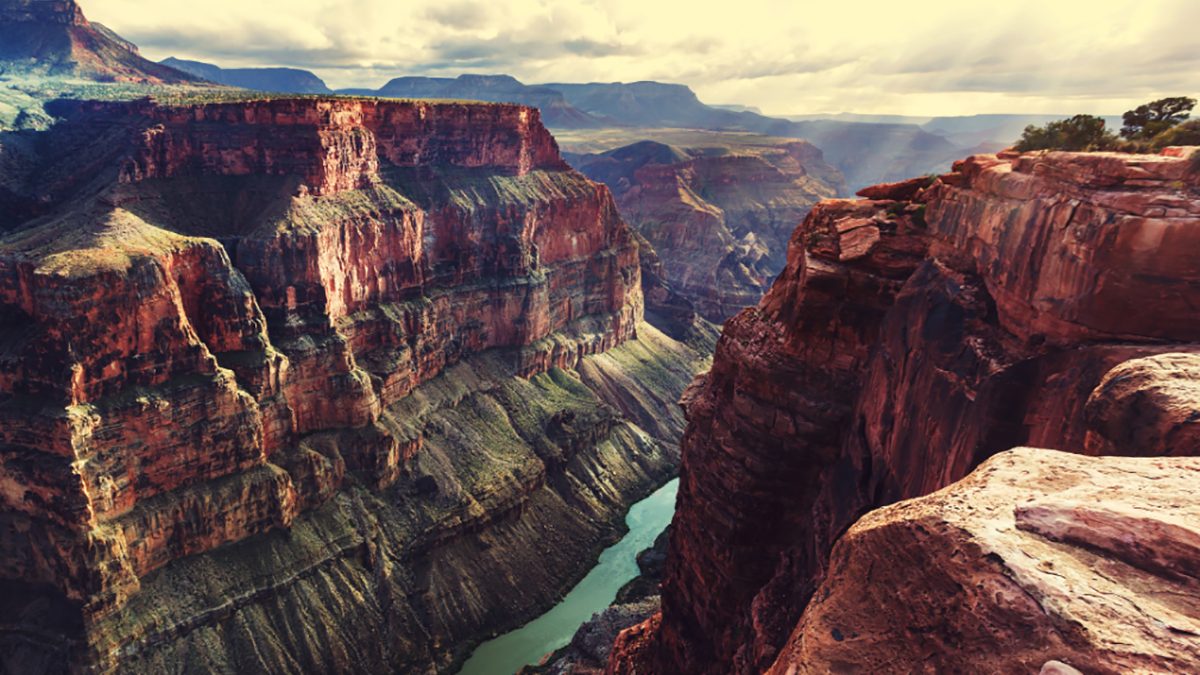
Canva
#2. Grand Canyon National Park
– Total charging stations: 5 (0.4 stations per 100K acres)
– Total chargers: 36 (3.0 chargers per 100K acres)
– 36 Level 2 chargers
Every year, nearly 5 million visitors flock to Grand Canyon National Park in northern Arizona. That includes many EV drivers, who can plug in at the Maswik Lodge or the Yavapai Lodge (though the Yavapai Lodge chargers are not in service at the time of writing) before hopping on the park’s shuttle bus. This will take you to plenty of stunning viewpoints and popular hikes so you won’t be short on things to do while waiting for your car to charge. Note that the more remote North Rim doesn’t have any EV chargers; the nearest charging stations are located over an hour away in Fredonia and Marble Canyon.
COMMITMENT-FREE CAR INSURANCE QUOTES
In two minutes or less, you can get free, no-commitment car insurance quotes without speaking to a representative.
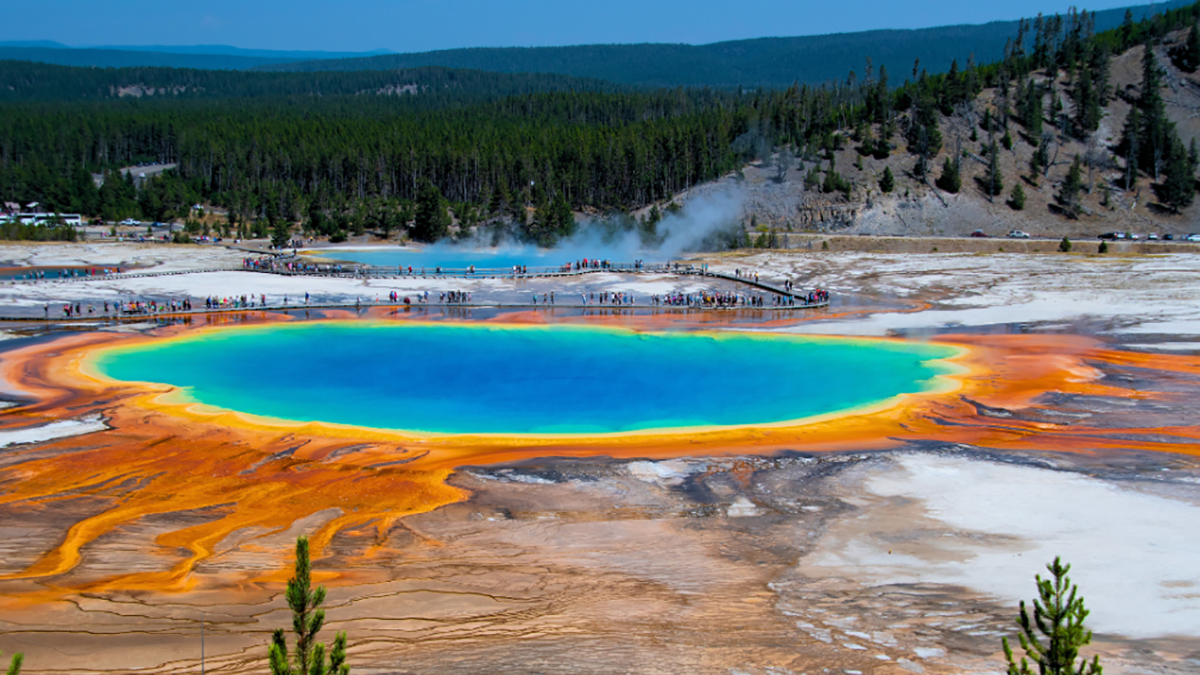
Canva
#1. Yellowstone National Park
– Total charging stations: 6 (0.3 stations per 100K acres)
– Total chargers: 12 (0.5 chargers per 100K acres)
– 12 Level 2 chargers
It’s no surprise that America’s first national park is also leading the way in terms of EV progress. Yellowstone National Park features about a dozen strategically placed chargers located near attractions like Mammoth Hot Springs and the famous Old Faithful geyser. And that’s just the beginning—the National Park Service has announced an initiative to transform Yellowstone into a hub for EV use. To that end, officials have also begun to take steps toward electrifying park vehicles with the goal of reducing greenhouse gas emissions.
Written by: Cu Fleshman. Data reporting by Emma Rubin. Story editing by Jaimie Etkin. Copy editing by Tim Bruns. Photo selection by Ania Antecka.







